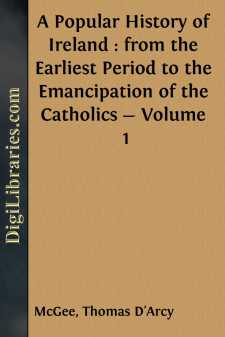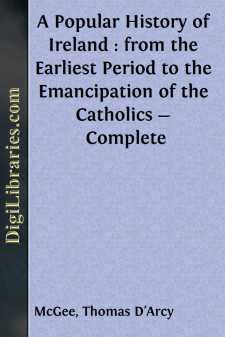History
- Africa 30
- Americas (North Central South West Indies) 50
- Ancient 68
- Asia 58
- Australia & New Zealand 8
- Canada 41
- Caribbean & West Indies 1
- Civilization 20
- Eastern Europe 12
- Europe 310
- Expeditions & Discoveries 60
- General 77
- Historical Geography 1
- Jewish 9
- Latin America 3
- Medieval 8
- Middle East 13
- Military 248
- Revolutionary 8
- Study & Teaching 5
- United States 353
- Western Europe 56
- World 13
History Books
Sort by:
by:
Henry R. Plomer
EDITOR'S PREFACE hen Mr. Plomer consented at my request to write a short history of English printing which should stop neither at the end of the fifteenth century, nor at the end of the sixteenth century, nor at 1640, but should come down, as best it could, to our own day, we were not without apprehensions that the task might prove one of some difficulty. How difficult it would be we had certainly...
more...
CHAPTER I COMMUNISTIC FARMING.—GROWTH OF THE MANOR.—EARLY PRICES.—THE ORGANIZATION AND AGRICULTURE OF THE MANOR When the early bands of English invaders came over to take Britain from its Celtic owners, it is almost certain that the soil was held by groups and not by individuals, and as this was the practice of the conquerors also they readily fell in with the system they found. These English,...
more...
CHAPTER I The remotest fact in the history of England is written in her rocks. Geology tells us of a time when no sea flowed between Dover and Calais, while an unbroken continent extended from the Mediterranean to the Orkneys. Huge mounds of rough stones called Cromlechs, have yielded up still another secret. Before the coming of the Keltic-Aryans, there dwelt there two successive races, whose story is...
more...
INTRODUCTION It will be very reasonably asked why I should consent, though upon a sort of challenge, to write even a popular essay in English history, who make no pretence to particular scholarship and am merely a member of the public. The answer is that I know just enough to know one thing: that a history from the standpoint of a member of the public has not been written. What we call the popular...
more...
CHAPTER I EUROPE BEFORE THE GREAT WAR To understand the Great War it is not sufficient to read the daily happenings of military and naval events as they are told in newspapers and magazines. We must go back of the facts of to-day and find in national history and personal ambition the causes of the present struggle. Years of preparation were necessary before German military leaders could convert a...
more...
by:
A. Woodward
INTRODUCTION. SECTION I. Since the following chapters were prepared for the press, my attention was directed by a friend, to a letter published in a Northern paper, which detailed some shocking things, that the writer had seen and heard in the South; and also some severe strictures on the institution of domestic slavery in the Southern States, &c. I have in the following work, related an anecdote...
more...
Ireland, lifting herself from the dust, drying her tears, and proudly demanding her legitimate place among the nations of the earth, is a spectacle to cause immense progress in political philosophy. Behold a nation whose fame had spread over all the earth ere the flag of England had come into existence. For 500 years her life has been apparently extinguished. The fiercest whirlwind of oppression that...
more...
Sir Henry Sidney, in writing to his court, had always reported John O'Neil as "the only strong man in Ireland." Before his rout at Lough Swilly, he could commonly call into the field 4,000 foot and 1,000 horse; and his two years' revolt cost Elizabeth, in money, about 150,000 pounds sterling "over and above the cess laid on the country"—besides "3,500 of her...
more...
Ireland, lifting herself from the dust, drying her tears, and proudly demanding her legitimate place among the nations of the earth, is a spectacle to cause immense progress in political philosophy. Behold a nation whose fame had spread over all the earth ere the flag of England had come into existence. For 500 years her life has been apparently extinguished. The fiercest whirlwind of oppression that...
more...
by:
Robert Black
CHAPTER XLIX. LOUIS XIV. AND HIS COURT. Louis XIV. reigned everywhere, over his people, over his age, often over Europe; but nowhere did he reign so completely as over his court. Never were the wishes, the defects, and the vices of a man so completely a law to other men as at the court of Louis XIV. during the whole period of his long life. When near to him, in the palace of Versailles, men lived, and...
more...











